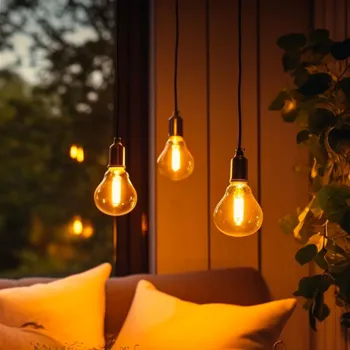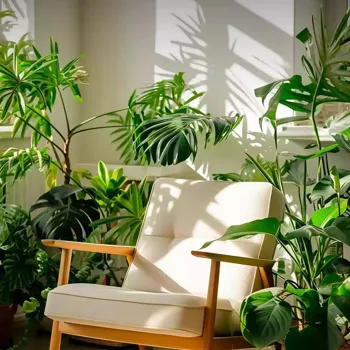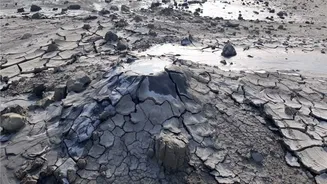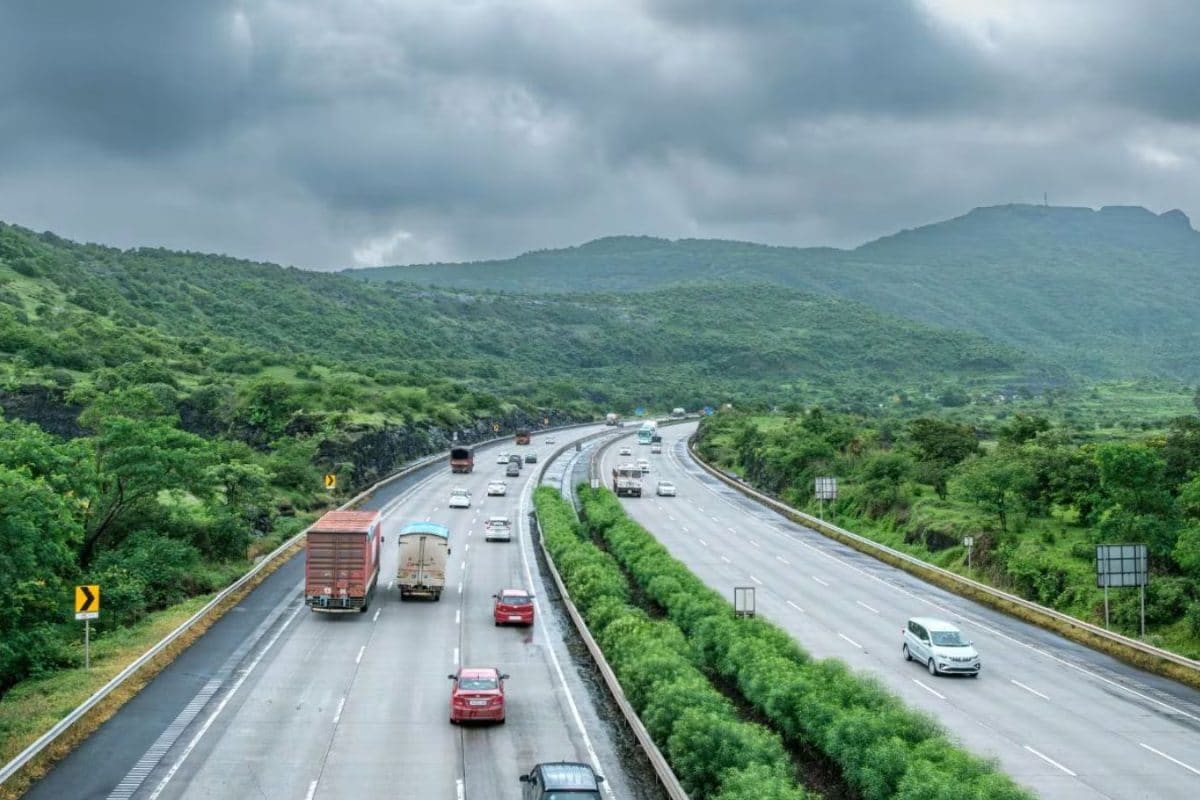Go Green at Home: 10 Simple Steps to Reduce Your Carbon Footprint! Dive into practical tips to create a sustainable home. Every small change counts towards a greener future!
Namaste, readers! With rising
temperatures and unpredictable weather, the impact of climate change is becoming increasingly clear, even in our beloved Bharat. We all have a responsibility to protect our environment, and the good news is, making a difference can start right at home.
You don't need to be a scientist or an activist to contribute. Small changes in your daily routine can have a big impact on reducing your carbon footprint and creating a greener, healthier future for generations to come.
So, let’s explore ten simple, practical steps you can take to "go green" in your own home and contribute to a more sustainable India.
Switch to LED bulbs for energy efficiency and lower bills
Ditch those old-fashioned incandescent bulbs, folks! Switching to energy-efficient LED (Light Emitting Diode) bulbs is one of the easiest and most effective ways to reduce your energy consumption. LEDs use up to 75% less energy than traditional bulbs and last significantly longer.

This translates to lower electricity bills and a smaller carbon footprint. Think about it: every time you flip a light switch, you’re making a choice. Choose the eco-friendly option. You can find LED bulbs in various shapes, sizes, and colors to suit your needs and preferences.
So, make the switch today and illuminate your home while also contributing to a brighter future for our planet. Don't forget to switch off lights when you leave a room – it's a habit that costs nothing but saves a lot!
Phantom load drains power, unplug devices to save energy and money
Phantom load, or vampire power, is the energy consumed by electronic devices even when they are turned off. It's like a silent energy thief, constantly draining electricity and increasing your bills.

To combat this, make it a habit to unplug chargers, televisions, computers, and other appliances when they are not in use. You can also use power strips to easily switch off multiple devices at once.
Consider this: even a small amount of phantom load from multiple devices adds up over time, contributing significantly to your overall energy consumption. Unplugging saves you money and reduces the demand for electricity, lessening the burden on our power grids and reducing carbon emissions.
It's a small effort with a big payoff for the environment.
Conserve water by fixing leaks, taking shorter showers, and using rainwater for gardening
Water is a precious resource, and conserving it is crucial for environmental sustainability. Start by fixing leaky faucets and pipes – even a small drip can waste a considerable amount of water over time. Take shorter showers and consider installing water-saving showerheads and faucets.

When washing dishes, avoid letting the water run continuously. Instead, fill one sink with soapy water for washing and another with clean water for rinsing. Collect rainwater and use it for gardening or cleaning. Water your plants during the cooler parts of the day to minimize evaporation.
By implementing these simple water-saving strategies, you can reduce your water bills and conserve this vital resource for future generations. Remember, every drop counts!
Compost food waste for eco-friendly gardening and reduce landfill waste
Instead of throwing away vegetable peels, fruit scraps, and coffee grounds, compost them! Composting is a natural process that decomposes organic matter into a nutrient-rich soil amendment that can be used in your garden.
It reduces the amount of waste sent to landfills, which reduces methane emissions, a potent greenhouse gas. You can create a simple compost bin in your backyard or use a composting service if you live in an apartment.
Composting not only benefits the environment but also provides you with free, high-quality fertilizer for your plants. It’s a win-win situation! Plus, it feels good to know you are turning waste into something valuable and contributing to a more sustainable lifestyle.
Reduce paper use by going digital, print double-sided, recycle to save trees & environment
Reduce your paper consumption by opting for electronic alternatives whenever possible. Sign up for online billing and statements, read news and magazines online, and take notes on your computer or tablet instead of using paper notebooks. When printing is necessary, print on both sides of the paper.

Recycle paper products whenever you can. Schools, offices, and public spaces often have recycling bins. By reducing your reliance on paper, you can help conserve trees, reduce deforestation, and lower the environmental impact of paper production.
Small changes in your habits can make a significant difference in protecting our forests and preserving our planet's biodiversity.
Planting trees is one of the most effective ways to combat climate change. Trees absorb carbon dioxide from the atmosphere and release oxygen, helping to purify the air and mitigate the effects of global warming. You can plant trees in your backyard, join a community tree-planting event, or support organizations that plant trees. Also, look for local green initiatives in your community and find ways to get involved. This could include volunteering at a local park, participating in a community cleanup, or supporting local businesses that are committed to sustainability. By actively participating in environmental efforts, you can make a tangible difference in your community and inspire others to do the same.
It's crucial for everyone to recognize the impact made by the little changes in daily routine. It contributes significantly to a greener and healthier lifestyle.
Shifting to LED lights, unplugging unused devices, saving water, composting, selecting electronic options and planting trees are some things one can do.
Saving water requires small changes such as fixing leaky faucets, shortening shower duration and investing in water saving faucets.
Doing this ensures that precious water is saved for the future. Water saving techniques are the best way to conserve water and protect this precious resource.
Composting, an organic procedure that converts waste into nourishment for soil.
This helps in reducing waste that goes to landfills, which leads to reducing emission of methane. Utilizing vegetable peels, food waste and coffee grounds to create compost provides the plants with nutrient content for growth and development.
Using less paper and supporting environmental friendly tasks makes a great difference in environmental protection. Electronic options are preferred over paper for daily activities.
Trees have the capacity to absorb carbon dioxide and give off oxygen, therefore planting trees and supporting such activities greatly saves the environment.
Incorporating these eco friendly activities and making them a part of everyday life saves resources and promotes an environment that is clean and sustained for the future generations. Small individual efforts are the foundation of significant environmental protection.
Embracing the idea of going green is about adopting practices that help the environment. These aren't just recommendations; they are moves toward a lifestyle that appreciates the earth and acknowledges how our behaviors impact the ecosystem.
Let's remember that every action, no matter how insignificant it may seem, plays a crucial role in determining our planet's future. Let's work together to make a difference in the environment.
AI Generated Content. Glance/InMobi shall have no liability for the content














